- IMF gives final nod to USD 5.2 bn standby loan for Egypt. (Speed Round)
- CBE leaves rates on hold, in line with expectations. (Speed Round)
- Egypt, Ethiopia, Sudan are looking to iron out a final GERD agreement as Addis Ababa says it will start filling reservoir in 2-3 weeks. (Speed Round)
- Egypt could be getting emergency tourism funding from EBRD, UNWTO. (Speed Round)
- Cabinet orders state bodies to trim spending, collect outstanding receivables. (Speed Round)
- Hassan Allam Construction lands Egyptian Black Sand Co contract. (Speed Round)
- Artist says goodbye to lockdown with giant screenings of iconic concerts on buildings. (Image of the Day)
- The Market Yesterday

Sunday, 28 June 2020
USD 5.2 bn from IMF + interest rates left on hold again. Plus: What’s next as Egypt reopens
TL;DR
What We’re Tracking Today
Maybe we’re getting old, but we’re not used to all the noise in the post 9pm hours after months of curfew. Also: Can you believe the first half of the year is nearly over?
That’s right, folks: We’re officially in the next phase of reopening as the nighttime curfew ended yesterday. Restaurants, coffee shops, sport clubs and houses of worship have the green light to open their doors after months of closure — albeit with some restrictions to curb the spread of the virus that causes covid-19. The Madbouly cabinet was out with a decree Thursday to enforce the reopening.
Most mosques appeared to open yesterday, but churches in Cairo and Alex are going to give it another couple of weeks before they resume regular services, according to a statement from the Coptic Orthodox Church.
Later this week: We’re reopening international airspace on Wednesday, 1 July with EgyptAir set to resume flights to 22 destinations. The national flag carrier aims to service 29 destinations by mid-July. Did you book before 15 June? You need to reconfirm your flights. Details here. Also worth checking out: The Financial Times’ look at who’s open to visitors,and who’s not.
(Sidebar: Among those not so welcome, it seems, will be US holidaymakers looking to escape to Europe as the bloc appears set to ban most American visitors on the grounds that the virus is out of control in the United States)
Welcome in Egypt: Just about anyone who can prove they’ve recently had a negative covid-19 test. Charter flights will resume this week to select Red Sea destinations on both the mainland and Sinai.
The next question we all need to ask: When will businesses with staff on WFH return to the office? We know nearly a dozen businesses that are stil “out for the duration” or launching trials of permanent work-from-home arrangements, including brand-name Egyptian corporations, multinationals and smaller firms. The permanent WFH arrangements will be voluntary and open to large groups of staff at two big Egyptian corporations we’re aware of. Like our parent company, we’re in the “out for the foreseeable future” camp.
Thinking of going back? Start here with the Harvard Business Review’s 5 tips for safely reopening your office, then go check the action plan experts suggested to Business Insider. The CDC has a very good plan / checklist.
Businesses are also going to have to deal with the fact that many schools are likely to be on “hybrid learning” this fall, and it’s still too early to tell how that might play out.
What could hybrid learning look like? Half the students go to class Sunday and Monday. The other half on Wednesday and Thursday. Then the groups alternate Wednesdays, with e-learning on the days they’re at home. Few schools here in Omm El Donia have made an announcement yet, but here’s what the New York Times thinks it could look like across the pond.
Be ready to be flexible with the parents on your staff.
Sign of the times: Banks in the US will be forced to limit dividend payments and can’t do share buybacks for the foreseeable future as part of a basket of precautionary measures the US Federal Reserve rolled out after completing a stress-test of major financial institutions, the WSJ reports.
Is your head spinning yet? Ours is, too. And so, too, the Journal, which takes the coming end of the first half to look back on six months that shook the world.
PSA- The (temporary) antidote: We have a mid-week holiday on Tuesday to which to look forward as we observe the 30 June national holiday. Also: Happy Canada Day (Wednesday) and happy Fourth of July (Saturday) to those who observe. Enterprise is off on Tuesday, but will be back in your inboxes on Wednesday at the usual time.
COVID-19 IN EGYPT-
The Health Ministry confirmed 88 new deaths from covid-19 yesterday, bringing the country’s total death toll to 2,708. Egypt has now disclosed a total of 63,923 confirmed cases of covid-19, after the ministry reported 1,168 new infections yesterday. We now have a total of 18,658 confirmed cases that have since tested negative for the virus after being hospitalized or isolated, of whom 17,140 have fully recovered.
Rameda and EvaPharma have started producing covid-19 treatments, the two companies said at the end of last week. Reuters has the news here and here.
Housing Minister Assem El Gazzar has tested negative for covid-19 and returns to work today after self-quarantining at home for 14 days, the Al Masry Al Youm reports. Meanwhile, Rep. Haitham El Hariri has tested positive, he said in a statement on Friday, making him the eighth MP to have tested positive, according to Al Mal.
Restart of football league hits a snag as Zamalek bails: Zamalek FC will not play in the Egyptian Premier League when it restarts in July due to the threat posed by covid-19, the club said in a statement on Wednesday. The league is supposed to be getting back underway on 25 July after a four-month hiatus, with players returning to training last week. Zamalek goalkeeper Mohamed Awaad announced that he has tested positive for the virus. The EFA admitted on Wednesday that six players had tested positive after returning to training on 20 June.
ON THE GLOBAL FRONT-
The US is seriously struggling to get a grip on its outbreak: The United States reported a record increase in new cases of covid-19 for three consecutive days last week as the virus surges in the country’s southern states, the Washington Post reports. An all-time high of almost 45k new cases were discovered on Friday, while 13 states set new seven-day records and six recorded new single-day highs. The CDC reports that actual US cases are likely 10x higher than the reported numbers show, according to the NYT. The surge has prompted Florida and Texas to reintroduce lockdown restrictions, the Financial Times reports.
India broke the 500k case mark after declaring 17k new infections on Friday, the Guardian says.
Dubai last week ordered all bars and pubs to close until further notice to help enourage folks to follow social distancing rules, Gulf News reported.
The EU has yet to agree on a “safe list” of countries whose residents can travel to the bloc, which is expected to initially exclude the United States, Russia, and Brazil because of the large number of covid-19 cases in those countries, Reuters reports.
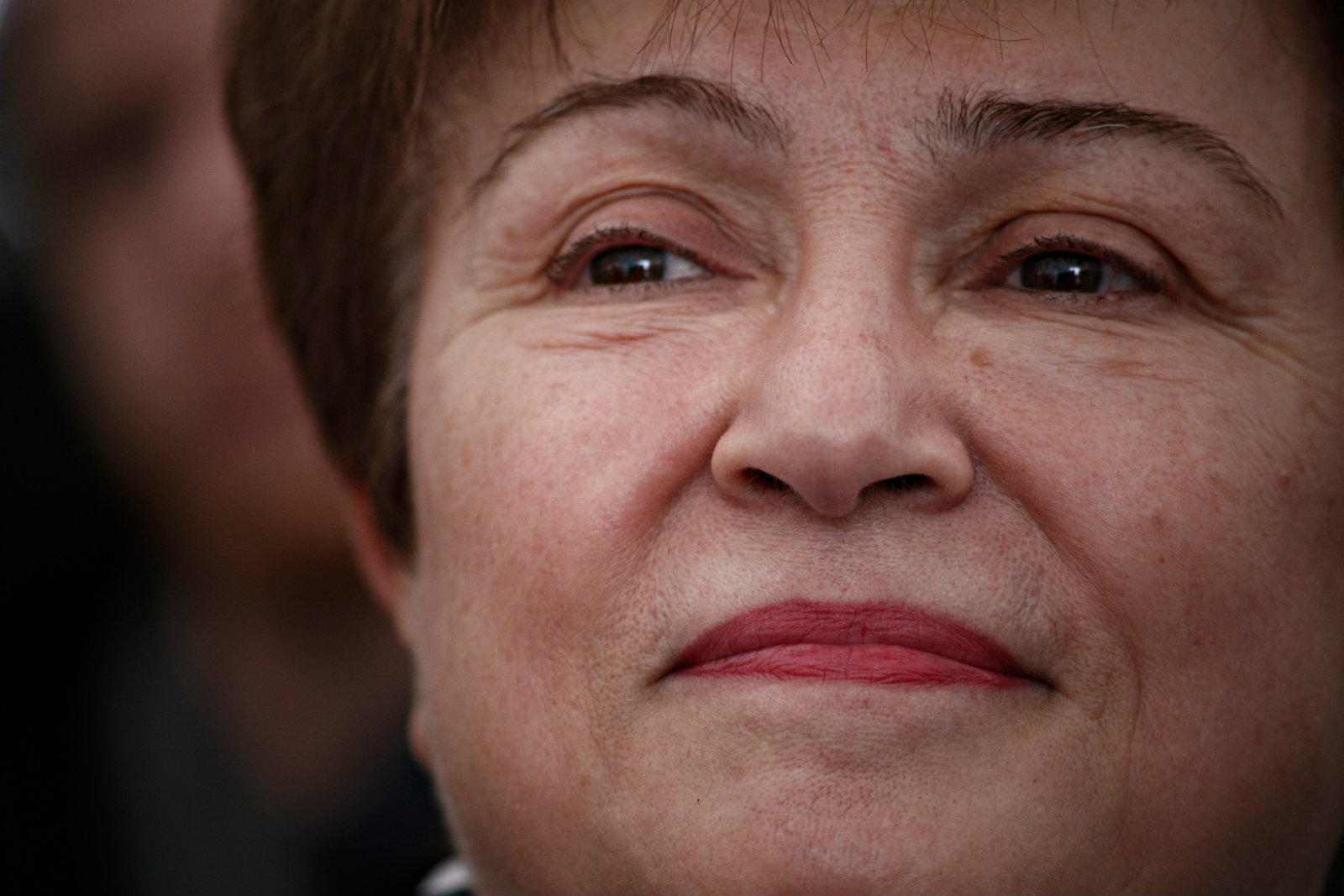
GLOBAL MACRO-
Could the coronavirus crisis leave the IMF broke? The global economic crisis caused by the covid-19 pandemic threatens to drain the IMF’s USD 1 tn in lending capacity if it continues to worsen, the fund’s managing director Kristalina Georgieva said on Friday, Reuters reports. The IMF last week significantly downgraded its outlook for the global economy, forecasting a 4.9% drop in global GDP (down from 3% in its April outlook) and USD 12 tn in lost output. “We still have about three quarters of our lending capacity available,” Georgieva said during a Reuters webcast. “I wouldn’t put it beyond us that we might be in a place where the IMF’s resources are being tested, but we’re not there yet.”
EGYPT BEYOND COVID-
The Tax Authority’s electronic tax filing system will have its beta version ready by this coming Tuesday, according to a ministry statement. The tax filing and collection electronic system would allow the authority to maintain better oversight on commercial transactions and make life easier for taxpayers, the statement says. This is part of Egypt’s new unified digital tax payment system that Finance Minister Mohamed Maait said will be fully implemented by the end of the year, which would provide businesses with a single online system for filing and paying income tax, stamp tax and the value-added tax.
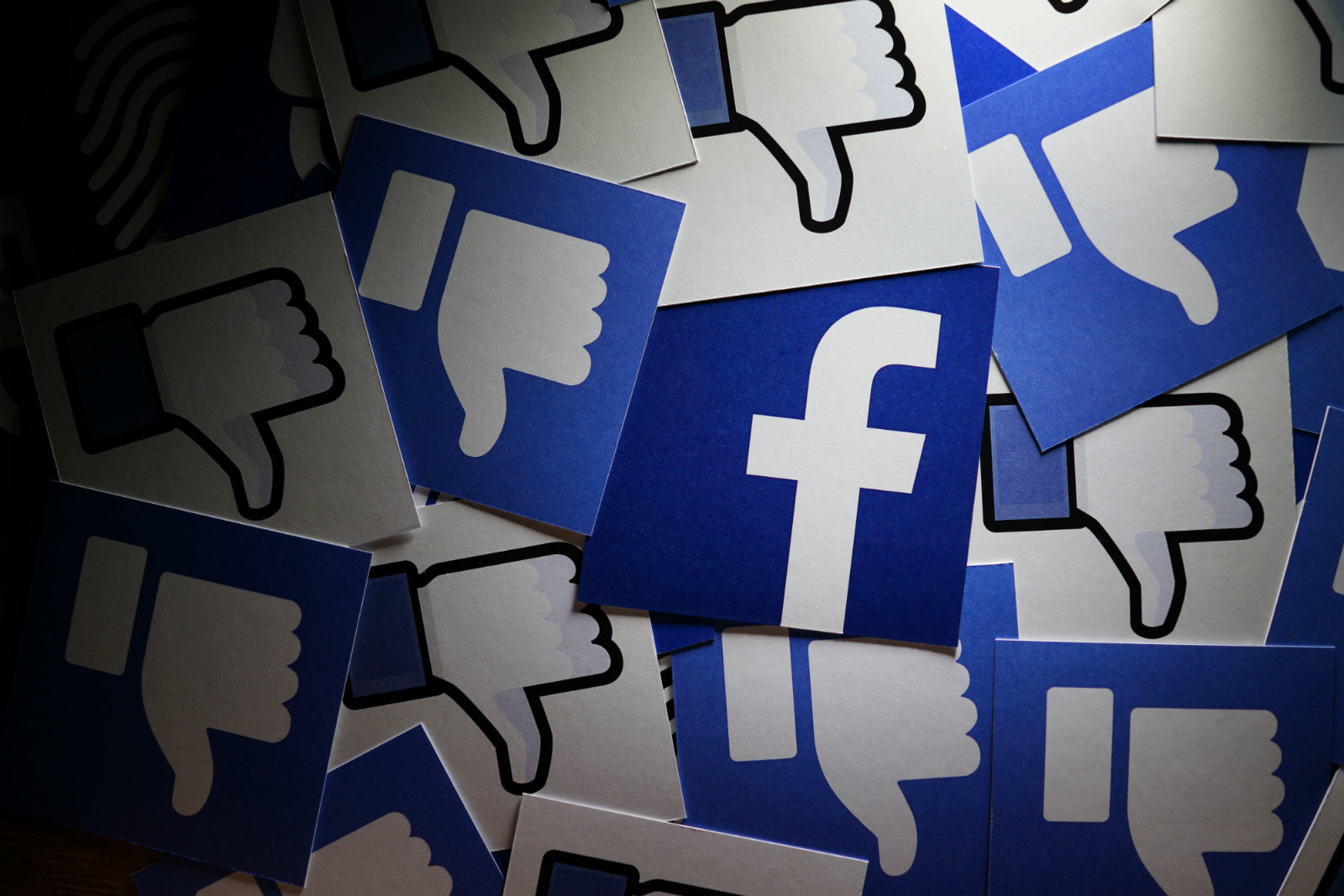
AND THE REST OF THE WORLD-
Major global corporations are pulling their advertisements from Facebook: Facebook’s shares plunged 8.3% on Friday as major companies pulled advertising from its platforms in an attempt to pressure the social media company to clamp down on offensive speech. Unilever, Coca-Cola, and Verizon have all joined the boycott, started earlier last week by outdoor gear shops showing support for the Stop Hate for Profit campaign created by US civil rights groups after the murder of George Floyd.
Zuckerberg tries to contain the situation: Facebook will begin labeling potentially harmful “newsworthy” content that breaches its terms of service, and ban ads that incite violence, contain hate speech, or suppress voting, founder Mark Zuckerberg announced on Friday.
Saudi’s National Commercial Bank wants to become the Gulf’s third-largest lender with the proposed USD 15.6 bn acquisition of Samba Financial Group, NCB said in a statement to the Saudi stock exchange. NCB, already the kingdom’s largest bank with a market value of USD 30 bn, would form a combined entity with almost USD 214 bn in assets if the transaction goes ahead, according to the Financial Times.
Amazon makes a play for the auto-auto market: Amazon has bought Zoox, a self-driving car startup that has been developing autonomous ride-hailing technology since its founding in 2014, it announced on Friday. Amazon didn’t mention the price tags, but the Financial Times claims the acquisition will cost the online retail giant around USD 1.2 bn.
From the Department of Window Dressing: Unilever will still sell its “Fair & Lovely” products — just under a different brand name. The company said on Thursday that it will rebrand the product line to remove words referencing whitening and fairness, but is steadfast that Fair & Lovely “has never been a skin-bleaching product,” the Wall Street Journal says. The product is most popular in countries including India, Bangladesh, Pakistan, and Omm El Donia, where ads often show a dark-skinned woman unhappy with her appearance until using the product transforms her into a lighter, happier version of herself. Johnson & Johnson announced earlier this month that it would stop selling its version of the skin bleach.
What’s one thing investors look for in a startup? A business that tackles a big problem with a solid team, Trella CEO Omar Hagrass told us on this week’s episode of Making It. Hagrass delves into his experience securing a USD 600K pre-seed round to launch the company and highlights sustainable growth as a key factor to building a mature company.
Trella allows shippers and carriers to optimize their time and resources by booking carriers for cargo directly through their app, eliminating time-consuming middlemen and trucks returning empty — a service that has become even more critical amid global supply chain disruptions.
Tap or click here to listen to the episode on our website | Apple Podcast | Google Podcast | Omny. We’re also available on Spotify, but only for non-MENA accounts. Subscribe to Making It here.
Enterprise+: Last Night’s Talk Shows
The latest developments in the Grand Ethiopian Renaissance Dam (GERD) negotiations following an emergency African Union (AU) summit on Friday topped the talking heads’ agendas last night. We have chapter and verse in this morning’s Speed Round, below.
Could the timeline for talks be extended again? Former Irrigation Minister Mohamed Nasr Allam told Al Kahera Alaan’s Lamees El Hadidi he doesn’t expect an agreement within the two-week deadline, saying talks could be extended. The technical issues will prove simpler to resolve than the legal sticking points, Allam said (watch, runtime: 6:20).
Egypt can still take the dispute back to the UN Security Council if the next two weeks still don’t yield a pact, the Arab League’s permanent representative to the United Nations, Maged Abdel Fattah, told Lamees. The council will hold its regularly scheduled meeting tomorrow and will discuss the issue to stay on top of developments, and Egypt can submit a draft resolution to the council at a later time, Abdel Fattah said (watch, runtime: 12:57). El Hekaya’s Amr Adib (watch, runtime: 7:16) and Masaa DMC’s Eman El Hosary also had coverage (watch, runtime: 5:22).
On the covid-19 front: President Abdel Fattah El Sisi inaugurated yesterday the Middle East’s largest isolation field hospital, with 4k beds and air ambulances, Lamees noted (watch, runtime: 0:38).
The removal of the nighttime curfew and the lifting of some lockdown measures last night also earned airtime on Al Kahera Alaan (watch, runtime: 2:21), El Hekaya (watch, runtime: 2:23 and runtime: 5:51), and Masaa DMC (watch, runtime: 10:24).
Speed Round
Speed Round is presented in association with
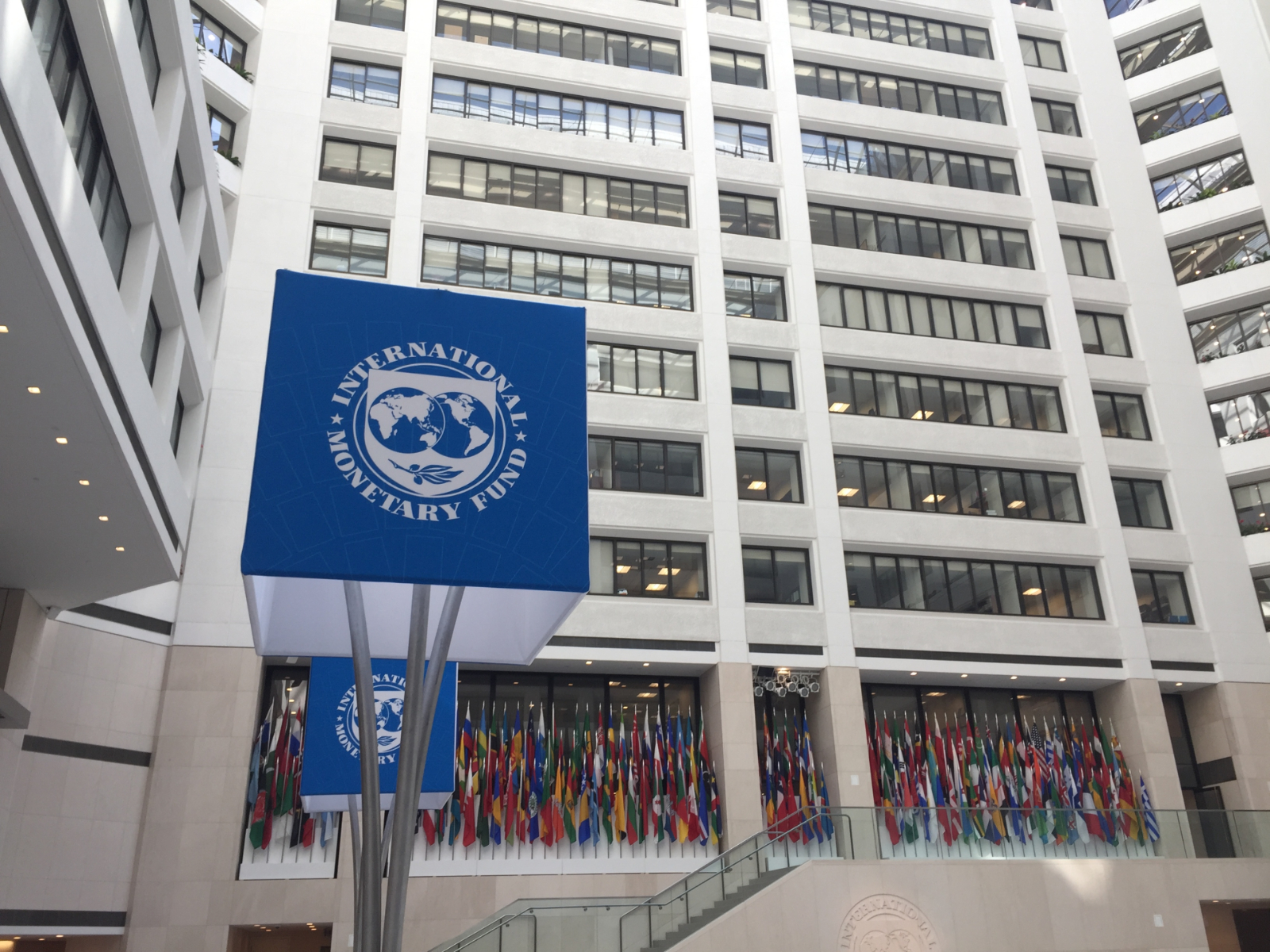
The IMF has approved a one-year USD 5.2 bn standby loan for Egypt, helping the country plug a balance of payments shortfall and finance its budget deficit, the fund’s executive board said in a statement on Friday. The approval allows for the immediate disbursal of USD 2 bn, with the remainder to be doled out in two tranches after staff reviews, a dance Egyptian policymakers are familiar with after USD 12 bn, three-year extended funding facility we drew following the float of the EGP. The IMF had no comment on the terms of the financing.
What will the money be used for? The funding will support healthcare and social programs for the vulnerable, protect and advance structural reforms, and boost private sector growth and job creation, IMF deputy managing director Antoinette Sayeh said.
The new loan is in addition to a USD 2.8 bn rapid financing instrument Egypt received from the IMF last month. The government is still seeking an additional USD 4 bn from undisclosed lenders to help it weather covid-19, a government official said last month.
Fitch Ratings said last month that fresh funds from the IMF will boost investor confidence in Egypt as portfolio outflows from emerging markets reverse. The funds may also help Egypt cut back on local borrowing to reduce the cost of servicing its debt, according to the Finance Ministry.
The news is getting plenty of digital ink this morning: Bloomberg | Wall Street Journal | Reuters | Associated Press.

CBE leaves rates on hold, in line with expectations: The Central Bank of Egypt left interest rates unchanged for the third consecutive meeting on Thursday, citing falling inflation, improving global financial conditions, and expectations of an economic recovery in a statement (pdf).
This was in line with analysts and economists surveyed in our poll ahead of the meeting: Nine of 10 respondents forecast the central bank to leave rates on hold, citing the weakening EGP, rebounding foreign interest in EGP-denominated bonds, and the likelihood of a pickup in inflation in the months ahead. The CBE had little room to maneuver, with the economic slowdown making a rate hike difficult, while cutting rates would undermine Egypt’s attractiveness to portfolio investors, Pharos’ head of research Radwa El Swaify said.
Where do rates stand? The CBE’s overnight deposit rate is at 9.25% and the lending rate is at 10.25%. The main operation and discount rates are both at 9.75%.
Emergency rate cut yet to filter through to the economy? “The Monetary Policy Committee’s (MPC) decision, which was in line with our expectations, was backed by the fact that the impact of the preemptive 300 bps cut to support domestic economic activity has yet to be seen on the ground,” said Alia Mamdouh, director of macro and strategy at Beltone Financial.
The unwinding of the government’s partial lockdown of the economy is good for growth: “The recently announced gradual easing of lockdown measures is expected to support the recovery of economic activity,” the bank said. The government yesterday fully lifted the curfew and allowed a host of non-essential services — such as restaurants, cafes and gyms — to re-open after three months’ of closure. International flights are due to restart at the beginning of July in a move the government hopes will rescue the country’s devastated tourism industry.
That being said, all options are on the table in the months ahead: “The MPC closely monitors all economic developments and will not hesitate to utilize all available tools to support the recovery of economic activity, within its price stability mandate,” it said. The MPC’s next meeting is scheduled for Thursday, 13 August.
The central bank’s decision leaves Egypt as one of the world’s most attractive carry trades, boasting the second-highest real interest rate. Leaving rates on hold is “crucial” to support foreign inflows into EGP bonds, said Mamdouh, who estimates that around USD 400 mn in foreign capital has been invested in treasuries in June. Egyptian fixed income securities saw around USD 17 bn in foreign outflows during the height of the covid-inspired emerging-market meltdown in March and April.

Egypt, Ethiopia, Sudan are looking to iron out a final GERD agreement as Addis Ababa says it will start filling its reservoir in 2-3 weeks: Egypt, Ethiopia, and Sudan agreed on Friday to push through the last phase of negotiations over the Grand Ethiopian Renaissance Dam (GERD) in a bid to reach a final agreement within 2-3 weeks, according to an Ittihadiya statement. The agreement to return to the negotiating table came at an African Union (AU) virtual summit attended by President Abdel Fattah El Sisi, Sudanese Prime Minister Abdalla Hamdok, Ethiopian Prime Minister Abiy Ahmed, and other African heads of state.
What to expect from the talks: The negotiations — which will focus on pending legal and technical issues, including how to monitor water flow and handle dry years — will be brokered by the AU. The AU agreed to bring on additional observers to the tripartite committee formed between the three countries, including South Africa (which currently chairs the AU) and members of the AU’s Bureau of Heads of State, according to a communiqué. The committee will present a report on the negotiations within a week.
Ethiopia sticks to guns on filling reservoir: The talks appear to be a final mad rush to reaching an agreement over these issues, which have bogged down progress on the dispute for years, as Ethiopia maintains it will begin filling the dam’s reservoir within the next two weeks, the country’s office of the prime minister said on Saturday. Construction of the dam will resume as planned, and the three countries have agreed to work on reaching an agreement on the sticking points by the time Ethiopia is ready to begin filling the reservoir. Cairo maintains that Addis Ababa will not take any unilateral action when it comes to filling the GERD reservoirs.
The UN Security Council will meet tomorrow to discuss the issue.
The story is getting plenty of attention from the global press: Associated Press | Reuters | AFP | Bloomberg | Arab News | Deutsche Welle.
Egypt in line for EBRD, UNWTO emergency tourism funding: Egypt is among a list of countries being considered by the European Bank for Reconstruction and Development (EBRD) and the UN World Tourism Organization (UNWTO) for emergency finance to support its tourism sector through the covid-19 pandemic, the EBRD said in a statement over the weekend. The multilateral lender didn’t provide specifics on how much funding will be made available and didn’t confirm whether Egypt would definitely be in line for assistance but said that it is one country “currently envisaged” for targeted support.
About the program: The EBRD is collaborating with the UN agency to provide assistance to countries whose tourism sectors have been heavily hit by restrictions introduced in response to the novel coronavirus. The funding will help countries upgrade health and safety protocols, design marketing campaigns to solve demand problems, and fund capacity-building and training programs for local workers.
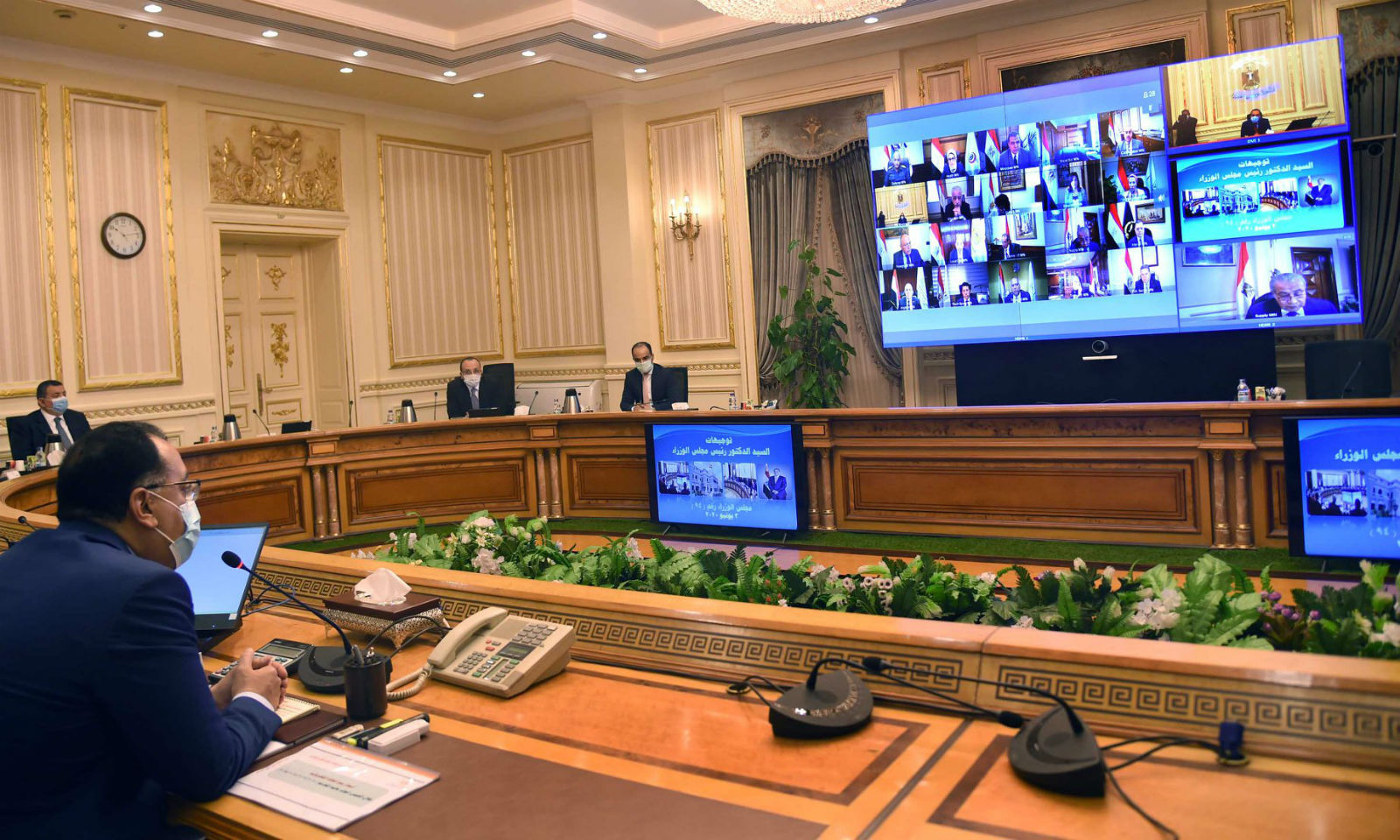
CABINET WATCH- Cabinet outlines new rules to streamline public finances, austerity measures: State bodies will be required to immediately take measures to collect any outstanding receivables and debt repayments owed to them in previous fiscal years, according to a set of new guidelines to streamline public spending and maximize revenues approved in the weekly cabinet meeting on Thursday. The decree also requires state agencies to better plan their annual budgets, buy locally-made goods and services, and halt new credit to suppliers and new accounts to debtors with outstanding balances, the statement said without giving further details.
State bodies are also being directed to try to cut their spending as part of the bid to minimize the impact of covid-19 on the state’s coffers, according to a separate decree cabinet greenlit yesterday. The decision requires a 20% cut in spending allocations for operations that have not slowed down, and a 50% reduction in spending for all activities that have either slowed or been suspended altogether. The decision does not apply to the health and supply ministries.
Also approved in yesterday’s meeting:
- Facemasks: A contract for the Supply Ministry to purchase 40 mn cloth face masks, with the first 12 mn batch to land before July ends followed by batches in July and August.
- IOM: Changes to an agreement between Egypt and the International Organization for Migration that relate to the organization’s legal status in the country;
- WFP: Two agreements between the Agriculture Ministry and the World Food Programme on food security; and
Hassan Allam Construction has landed a contract from the Egyptian Black Sand Company (EBSC) to construct concentration and separation plants for extracting minerals from black sands, the company said in a statement (pdf). Hassan Allam will carry out the design review, procurement and civil and electro-mechanical works for the facility as well as “the supply, fabrication and installation of all steel structure and plate works.”
The facility is both an import-substitution play and an export opportunity, said Hassan Allam Holding CEO Hassan Allam, noting that “industry in Egypt continues to move towards the use of local, sustainably sourced raw materials. Sourcing black sand minerals locally will not just provide Egyptian manufacturers with accessible replacements to imported raw materials, but will also create new export opportunities.”
The EBSC plant will be the largest of its kind in the region and be built near Burullus in Kafr El Sheikh. EBSC is part of the military-affiliated National Service Products Organization. Company CEO Gen. Ezz El Din Saleh said the plant work will “bolster the economy” and create thousands of jobs while “protecting the environment from radioactive materials found in black sand.”
State-owned banks sell EGP 203 bn of 15% savings certificates: The National Bank of Egypt (NBE) has sold EGP 147 bn-worth of its high-interest savings certificates as of the end of last week, NBE Vice President Yehia Aboul Fotouh said, according to the local press. Meanwhile, Banque Misr has sold EGP 56 bn-worth of the 15% certificates since their launch in March, said Vice President Akef El Maghraby.
Image of the Day
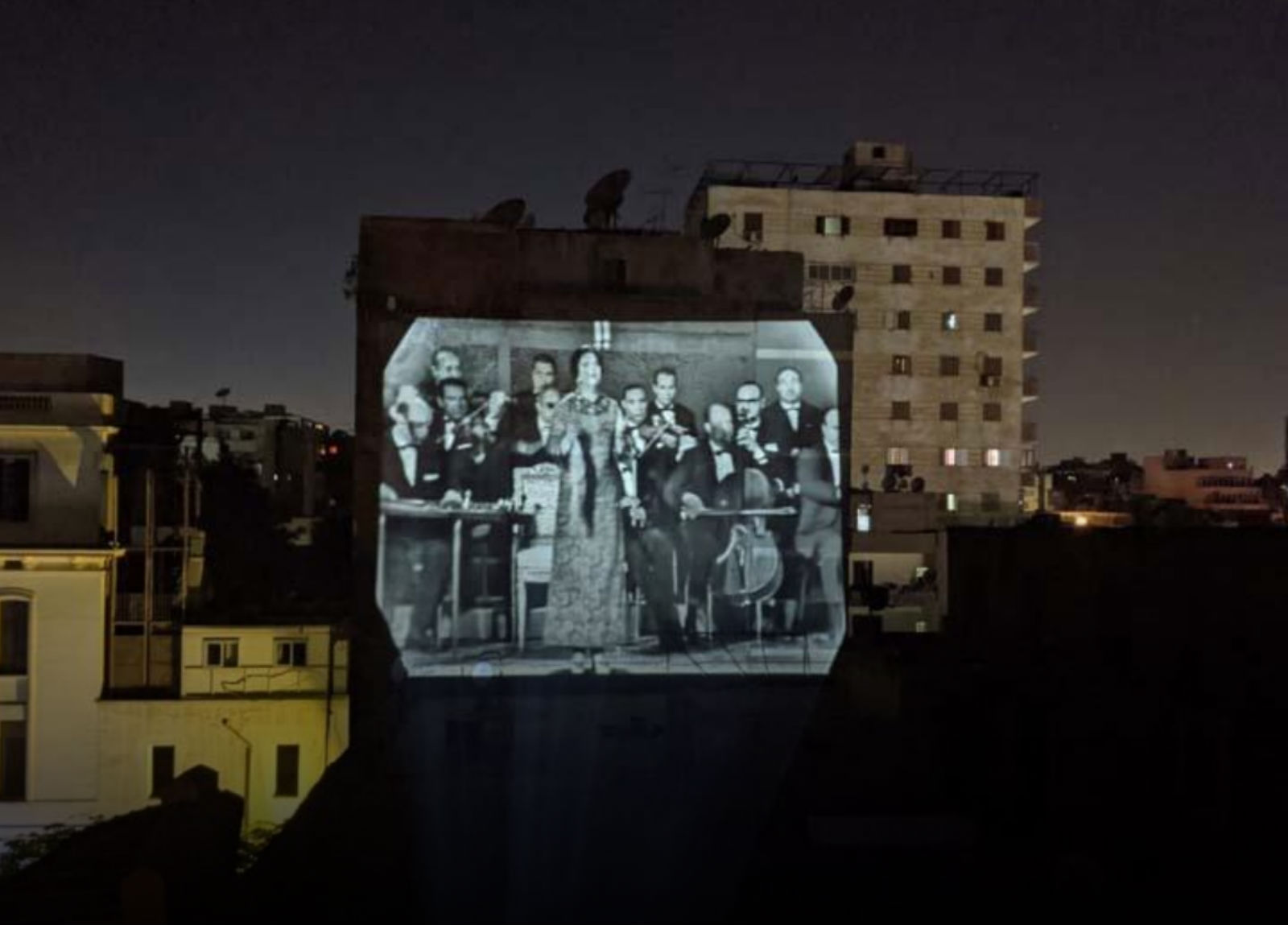
Artist says goodbye to lockdown with giant screenings of iconic concerts on buildings: Video artist Mohamed Allam projected live concerts of Umm Kalthoum, Abdel Halim Hafez, and Quran reciter Abdul Basit Abdul Samad on select Cairo buildings over the past few weeks as the nation waves goodbye to the nighttime curfew, reports Ahram Online.
Egypt in the News
There’s plenty of ink about Egypt in the international press this morning, with stories including the filling of the Grand Ethiopian Renaissance Dam and the USD 5.2 bn IMF loan both getting plenty of ink, as we note in Speed Round, above.
Egypt’s warning of military intervention in Libya is also getting attention: Guardian | Al Monitor | Arab News | Jerusalem Post. Rights stories are also getting attention in the National Post, the Associated Press and Deutsche Welle. The National Geographic, meanwhile, chronicles the discovery of the empty tomb of King Seti I in the Valley of the Kings.
Diplomacy + Foreign Trade
Egypt’s agricultural exports dip slightly in 1H2020: Egypt exported 3.47 mn tonnes of fruits and vegetables since the beginning of 2020, down fractionally from the 3.7 mn tonnes Egypt exported in 1H2019, despite the covid-19 pandemic taking a toll on the volume of global trade, Agriculture Minister El Sayed El Quseir said. Citrus exports made over a third of the total amount sold abroad, with 1.38 mn tonnes leaving our ports since 1 January, said Agricultural Quarantine Authority head Ahmed Al Attar. Potato and onion exports rounded up the top three, followed closely by exports of grapes and garlic.
Energy
Siemens to announce Lekela wind farm electric works bid winner next month
Siemens Gamesa, which is handling logistics on the Lekela wind power project in Ras Gharib, will announce the bid winner for electric works on the wind farm next month, the local press reports, citing unnamed sources familiar with the matter.
Manufacturing
Acdima signs MoU with SK Plasma to produce plasma-derived products
Acdima Pharma signed an MoU with South Korea’s SK Plasma to produce plasma-derived medicinal products in Egypt, the local press reports, without providing additional details. Medical centers treating covid-19 have been experimenting with plasma therapy, administering antibody-rich blood from recovered patients to new ones through transfusions.
Automotive + Transportation
General Electric delivers fourth batch of locomotives to Egypt
General Electric delivered 20 new locomotives to Egypt on Friday, the fourth batch of rail engines that Egypt had purchased in 2017 in a USD 602.5 mn agreement, cabinet said. The agreement will see GE deliver a total of 110 new railway tractors and upgrade 81 others. The latest batch brings the total number of new locomotives GE has delivered to 70.
Banking + Finance
Qasatli, EFG Hermes sign contract to issue EGP 1.8 bn securitized bonds for Amer’s Porto and Mansour groups
EFG Hermes and newly set-up mortgage finance company Qasatli have signed an agreement to issue EGP 1.8 bn-worth of five-year securitized bonds for “two of the largest real estate companies in Egypt,” Qasatli said in a statement. Qasatli didn’t name the issuers but Hapi Journal claims that Mansour Amer’s Porto Group and Amer Group are the companies behind the offering.
Palm Hills signs EGP 365 mn loan with BM, AAIB to finance Hacienda Bay
Real estate developer Palm Hills Developments has signed a EGP 365 mn loan agreement with Banque Misr and the Arab African International Bank to finance construction at its Hacienda Bay compound in the North Coast, the company said in a regulatory filing (pdf).
Central Bank of Egypt launches initiative to add 6.5k ATMs nationwide
The Central Bank of Egypt is helping banks to roll out 6.5k ATMs across the country as part of a wider plan to add 20k machines nationwide as part of its financial inclusion and digitization strategy, the local press reports.
National Security
Egypt executes Libyan militant Abdel Rahim Al-Mismari
Egyptian authorities executed yesterday Libyan militant Abdel Rahim Al Mismari, who was convicted by a military court of carrying out a 2017 attack that killed 16 officers in the Western Desert, according to the Defense Ministry (watch, runtime 6:55). Al Mismari was also convicted of forming and joining a terrorist organization in Libya and kidnapping a police officer.
Sports
Egypt’s Raneem El Welily retires from professional squash
World No.1 squash player Raneem El Welily announced she’s retiring from the professional scene to focus on family life. The 31-year-old broke a two-year dry spell for Egyptians when she led the world rankings after bringing home the 2017 World Championship in the UK. She won 24 titles since she started her senior career in 2009, according to Ahram Online.
On Your Way Out
Egyptian cinema’s Tunisian darling Hend Sabry won the best actress award for “Noura’s Dream” at the Cannes Film Festival’s Critics Awards for Arab Films event, which was held online this year. Palestinian filmmaker Elia Sulieman’s “It Must Be Heaven” won the best film and director awards. The National has more.
The Market Yesterday
EGP / USD CBE market average: Buy 16.12 | Sell 16.22
EGP / USD at CIB: Buy 16.12 | Sell 16.22
EGP / USD at NBE: Buy 16.10 | Sell 16.20
EGX30 (Thursday): 10,890 (-1.4%)
Turnover: EGP 1.1 bn (37% above the 90-day average)
EGX 30 year-to-date: -22%
THE MARKET ON THURSDAY: The EGX30 ended Thursday’s session down 1.4%. CIB, the index’s heaviest constituent, ended down 1.9%. EGX30’s top performing constituents were EFG Hermes up 2.9%, GB Auto up 2.2%, and Porto Group up 1.9%. Thursday’s worst performing stocks were Orascom Development down 3.9%, Dice down 3.0% and Cleopatra Hospital down 3.0%. The market turnover was EGP 1.1 bn, and domestic investors were the sole net buyers.
Foreigners: Net Short | EGP -99.0 mn
Regional: Net Short | EGP -6.3 mn
Domestic: Net Long | EGP +105.3 mn
Retail: 68.7% of total trades | 71.4% of buyers | 65.9% of sellers
Institutions: 31.3% of total trades | 28.6% of buyers | 34.1% of sellers
WTI: USD 38.49 (-0.59%)
Brent: USD 41.02 (-0.07%)
Natural Gas (Nymex, futures prices) USD 1.54 MMBtu, (-0.13%, August 2020 contract)
Gold: USD 1,780.30 / troy ounce (+0.55%)
TASI: 7,232.34 (+0.26%) (YTD: -13.79%)
ADX: 4,285.59 (-1.02%) (YTD: -15.57%)
DFM: 2,086.51 (-0.61%) (YTD: -24.53%)
KSE Premier Market: 5,656.71 (-0.22%)
QE: 9,184.97 (-0.44%) (YTD: -11.90%)
MSM: 3,525.77 (+0.03%) (YTD: -11.44%)
BB: 1,279.38 (-0.11%) (YTD: -20.54%)
Calendar
30 June (Tuesday): Anniversary of the June 2013 protests, national holiday.
1 July (Wednesday): Official reopening of Egypt’s airspace to inbound and outbound international flights.
12 July (Sunday): North Cairo Court will hold a court session for the international arbitration case filed by Syrian Antrados against Porto Group for USD 176 mn after being pushed back from an initial 17 May court date.
28-29 July (Tuesday-Wednesday): US Federal Open Market Committee will hold its two-day policy meeting to review the interest rate.
30 July-3 August (Thursday-Monday): Eid El Adha (TBC), national holiday.
13 August (Thursday): The CBE’s Monetary Policy Committee will meet to review interest rates.
20 August (Wednesday-Thursday): Islamic New Year (TBC), national holiday.
15-16 September (Tuesday-Wednesday): US Federal Open Market Committee will hold its two-day policy meeting to review the interest rate.
24 September (Thursday): The CBE’s Monetary Policy Committee will meet to review interest rates.
24 September- 2 October (Thursday-Friday): El Gouna Film Festival, El Gouna, Egypt.
6 October (Tuesday): Armed Forces Day, national holiday.
29 October (Thursday): Prophet Mohamed’s birthday (TBC), national holiday.
November: Egypt will host simultaneously the International Capital Market Association’s emerging market, and Africa and Middle East meetings.
4-5 November (Tuesday-Wednesday): US Federal Open Market Committee will hold its two-day policy meeting to review the interest rate.
12 November (Thursday): The CBE’s Monetary Policy Committee will meet to review interest rates.
15-16 December (Tuesday-Wednesday): US Federal Open Market Committee will hold its two-day policy meeting to review the interest rate.
24 December (Thursday): The CBE’s Monetary Policy Committee will meet to review interest rates.
25 December (Friday): Western Christmas.
1 January 2021 (Friday): New Year’s Day, national holiday.
7 January 2021 (Thursday): Coptic Christmas, national holiday.
Enterprise is a daily publication of Enterprise Ventures LLC, an Egyptian limited liability company (commercial register 83594), and a subsidiary of Inktank Communications. Summaries are intended for guidance only and are provided on an as-is basis; kindly refer to the source article in its original language prior to undertaking any action. Neither Enterprise Ventures nor its staff assume any responsibility or liability for the accuracy of the information contained in this publication, whether in the form of summaries or analysis. © 2022 Enterprise Ventures LLC.
Enterprise is available without charge thanks to the generous support of HSBC Egypt (tax ID: 204-901-715), the leading corporate and retail lender in Egypt; EFG Hermes (tax ID: 200-178-385), the leading financial services corporation in frontier emerging markets; SODIC (tax ID: 212-168-002), a leading Egyptian real estate developer; SomaBay (tax ID: 204-903-300), our Red Sea holiday partner; Infinity (tax ID: 474-939-359), the ultimate way to power cities, industries, and homes directly from nature right here in Egypt; CIRA (tax ID: 200-069-608), the leading providers of K-12 and higher level education in Egypt; Orascom Construction (tax ID: 229-988-806), the leading construction and engineering company building infrastructure in Egypt and abroad; Moharram & Partners (tax ID: 616-112-459), the leading public policy and government affairs partner; Palm Hills Developments (tax ID: 432-737-014), a leading developer of commercial and residential properties; Mashreq (tax ID: 204-898-862), the MENA region’s leading homegrown personal and digital bank; Industrial Development Group (IDG) (tax ID:266-965-253), the leading builder of industrial parks in Egypt; Hassan Allam Properties (tax ID: 553-096-567), one of Egypt’s most prominent and leading builders; and Saleh, Barsoum & Abdel Aziz (tax ID: 220-002-827), the leading audit, tax and accounting firm in Egypt.





